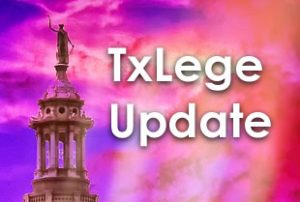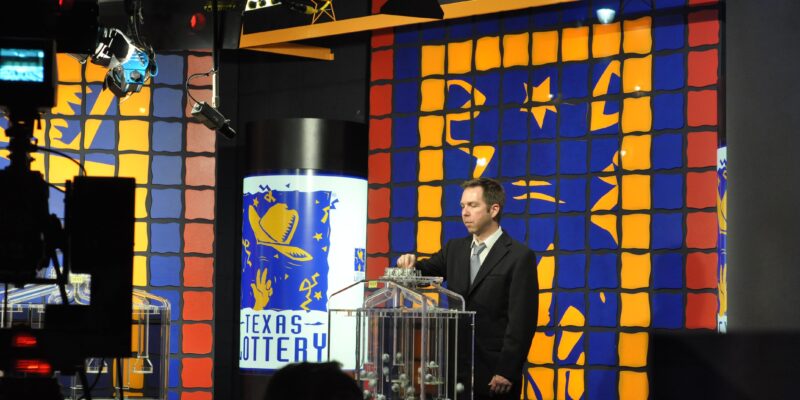 The Texas Lottery came under two major hits this week, indicating trouble is afoot for the nearly 35-year-old state commission that runs it, but also scratching off old wounds.
The Texas Lottery came under two major hits this week, indicating trouble is afoot for the nearly 35-year-old state commission that runs it, but also scratching off old wounds.
For starters, Lt. Gov. Dan Patrick returned to his broadcasting roots and investigated a non-descript Austin store at which two winning tickets were purchased via courier services and bulk purchases.
Secondly: Gov. Greg Abbott today directed the Texas Rangers to investigate a bulk purchase of lottery tickets in April 2023 which resulted in a $95 million Lotto Texas win and a recent $83.5 million jackpot through a courier service and smartphone app.
The $83.5 million ticket was purchased through the app Jackpocket, a DraftKings subsidiary, making use of the courier method.
“Texans must be able to trust in our state’s lottery system and know that the lottery is conducted with integrity and lawfully,” said Governor Abbott in a press release. “Today, I directed the Texas Rangers to fully investigate these incidents and identify any potential wrongdoing. Texans deserve a lottery that is fair and transparent for everyone.”
The two Republican leaders stopped short of calling for the abolition of the state-supported lottery, which has off and on been in the Texas GOP platform — though Patrick said if courier services were not banned outright “the Lottery would end.” A bill from Texas Sen. Bob Hall would ban courier services in state code.
The dust-up from Patrick and others may have resulted in Texas Lottery Commissioner Clark E. Smith resigning on Friday. But it unquestionably resulted in the Texas Lottery Commission announcing it would put forward an administrative rule draft to ban courier services. The rule amendments will be formally proposed by agency staff to the Commission board at an open meeting scheduled for Tuesday, March 4, with the intent for the amendments to be adopted at an April open meeting following a 30-day public comment period.
“I’ve never read so much garbage from a state agency press release in my 18 years in office,” Patrick followed in a Facebook post. “After years of claiming they had no authority to regulate lottery couriers, today the Texas Lottery Commission suddenly exercised the ultimate regulatory authority by banning all lottery couriers in Texas.
“It was just two weeks ago in Senate Finance that they hesitated to answer direct questions from members about their concerns about the Texas Lottery. Only when pressed did they acknowledge there may have been money laundering through the Texas Lottery. Today’s action is an obvious admission that the Texas Lottery Commission had the oversight authority all along and allowed these businesses to creep into Texas and undermine the integrity of the Texas Lottery.”
Patrick said SB 1820, passed by the Senate and not the Texas House during the 2023 legislative session, would have outright banned lottery couriers in Texas. “They should never have allowed couriers into Texas and certainly should have woken up after SB 1820, but they ignored it, just as they have suspiciously left SB 1820 out of their statement,” Patrick continued.
Couriers are unregulated companies that take lottery ticket orders from customers online, the Lottery Commission explained in its release. Upon receipt of funds from a customer, the courier purchases lottery tickets from a licensed lottery retailer with whom the courier has a
private business arrangement. In practice, the courier and the retailer are often located in the same building or office. The courier transmits a scanned image of the ticket to the customer and retains the ticket until it is determined to be a winning or non-winning ticket. Couriers charge a fee for their service to purchase and manage their customers’ tickets.
From the hip
As for threatening the existence of the Lottery, Patrick was not off the Republican reservation on that:
“We oppose any expansion of gambling, including legalized casino gambling,” the 2024 Texas Republican platform reads under the subhead “Gambling.” “We oppose and call for a veto of any budget that relies on expansion of legalized casino gambling of any type or size, whether as a standalone business or partnered with any other business or resort, as a method of finance.”
When the Texas Lottery was introduced in 1991, then-Gov. Ann Richards suggested it as a panacea to school finance woes. Supporters then said some kind of new tax was inevitable: either establish a state lottery or a state income tax. Opponents called the lottery proposal a “poor tax” but could not shake off Richards’ suggestion that they were opposing additional funding for schools by opposing both a lottery and an income tax. Think of the children.
That was back when Texas was under Democratic leadership, and cutting the size and scope of government was even more a distant dream that it seems to be today. New taxes were only a session a way in those days.
Proceeds from the lottery have gone on to finance many other things other than education since then — usually things elected legislators can’t say no to, such as veterans assistance programs. In October 2024, $127.9 million was sent to the state’s Foundation Education Program which is a tiny drop of the roughly $54 billion Texas public education budget. It took until 1997 for funds from the lottery to begin trickling into the public school system, which still struggles with funding issues.
Would casino gambling help fill the budgetary void? Doubtful. And app developers would find ways to game that system, too.
Advertisement
Advertisement

